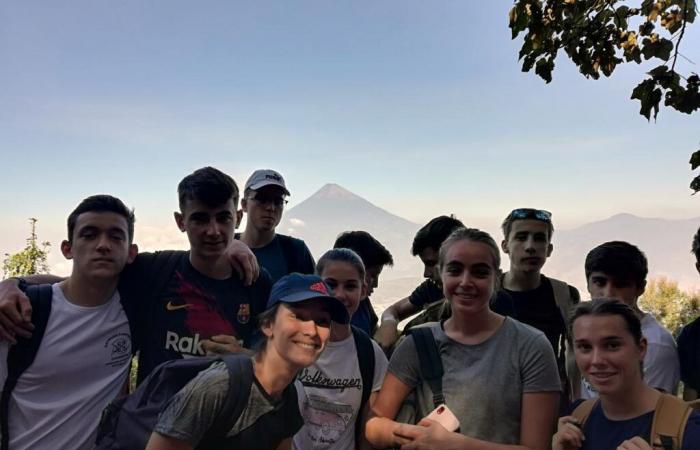Other final year students, in the euro section, are preparing, with Sandrine Boutier, Spanish teacher, their next “humanitarian adventure” in Guatemala, at the end of January. “We are going there with an NGO, Amistad, which supports the native populations. We will help build a road, work in the fields and bring medical supplies,” the teacher predicts.
Travels to other continents
In Angoulême, the vast majority of middle and high schools in the city organize excursions eagerly awaited by students. Going with their friends, far from their parents, to discover new cultures and get a change of scenery, these expeditions attract many of them. “Families are really asking,” says Laurence Epaud, director of Saint-Paul, who also sends her students to the other side of the world. In February, 25 teenagers will go to Australian families in Brisbane. 40 in California at Easter. The United States is a destination of choice. Both for private establishments, such as Saint-Joseph l’Amandier which organizes a stay in Chicago, and for those of the public, like the Marguerite-de-Valois high school and its annual trip to Washington.
These expeditions to other continents have a certain cost for families. “For the United States, it takes more than €1,000 per student, to be paid by them,” explains Christophe Simonet, principal of Marguerite-de-Valois. In Sainte-Marthe, parents must pay 1,500 euros for Guatemala.
But the cost is not just financial. It is also ecological. The return flight from Paris to Brisbane, with a stopover in Dubai, amounts to releasing at least five tonnes of CO2. And this, while the objective to achieve carbon neutrality is set at two tonnes of CO2, per French person per year. “Obviously, taking the plane pollutes,” repeat all the organizers. “But we are not a travel agency. Our stays are educational, they are part of our programs,” explains Richard Ferchaud, deputy director of Sainte-Marthe.
What place for the environmental question?
The teaching teams all say they are thinking about this environmental issue. “It’s even at the heart of our thinking. Of course, we are going to Guatemala, but we do ecotourism there. We don’t go to hotels but to locals. We only work with local people and not for large companies,” explains Sandrine Boutier, who is co-organizing this action for the second time in five years. A reflection echoed by his student Zayane MRad: “I haven’t taken a plane much in my life. If I do it once, it’s worth it. »
At Lisa, the Lycée de l’image et du son, the question of carbon impact takes up more space. In this establishment, 15 days are standard, at the beginning of April, giving the opportunity to 200 students to go to Italy, Poland or Spain. “For three years, our students have been more attentive to this question,” observes Sylvie Kocik, the principal. Travel is all by bus or train.
“This now takes a central place in our organization,” assures Christophe Simonet. When we stay in Europe, we don’t take the plane. The art students took the bus to Venice in November. “. Observation shared by Laurence Boulakia, principal at Jules-Verne college whose Germanist students travel annually to Bremen by train.
No trip to Guez-de-Balzac
At Guez-de-Balzac high school, there will be no school trip this year for secondary students. Only students in the second year of literary preparatory class will go to the Cannes festival. Plans for stays in Spain and Italy had been studied for high school students at the start of the school year. But “for lack of a manager, they were canceled,” explains Delphine Nibaudeau, principal of the establishment. She hopes to be able to organize one next year in Germany, “if the budget allows”.






